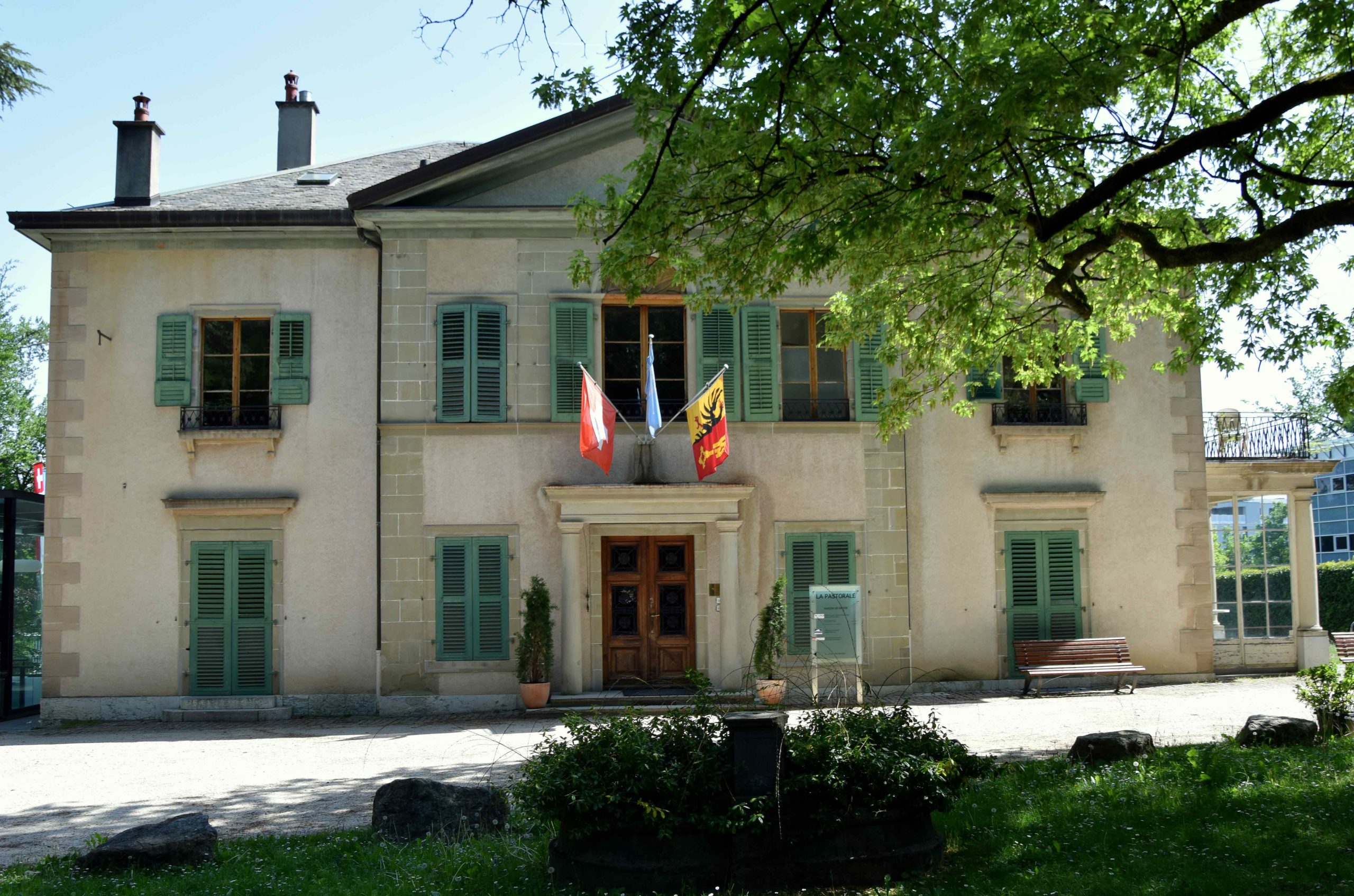Services for NGOs
The CAGI assists international non-governmental organizations (NGOs) established or wishing to set up in the Geneva region.
- Home
- Benefits
- Services for NGOs
- Registration with the Register of commerce
Registration with the Register of commerce
Registering an association
Registering an association with the Register of commerce is compulsory under certain conditions. Associations that do not meet the conditions for compulsory registration may nevertheless register voluntarily with the Register of commerce.
There are three instances in which an association is required to register with the Register of commerce:
1. The association conducts a commercial activity in furtherance of its ideal (non-economic) purpose (art. 61, para. 2 ch. 1 CC);
This refers to an organized economic activity aiming at a regular income (art. 2 let. a ORC), regardless of the amount of turnover.
2. The association is subject to the obligation to have its accounts audited (ordinary audit or limited auditing) (art. 61, para. 2 ch. 2 CC);
In accordance with article 69b CC, an association must submit its accounts to the auditor’s ordinary audit if, in two successive financial years, two of the following values are exceeded:
- balance sheet total: CHF 10 million,
- turnover: CHF 20 million,
- number of employees: 50 full-time employees on annual average.
Furthermore, according to article 69b para. 2 CC, the association must submit its accounts to the limited auditing of an auditor if required by a member of the association who is individually liable (according to the statutes) or obliged to make additional payments (art. 71 CC).
3. The association primarily collects or distributes assets abroad, directly or indirectly, that are intended for charitable, religious, cultural, educational or social purposes (art. 61 para. 2 ch. 3 CC).
The associations covered by this third case are exempt from compulsory registration with the Register of commerce if the following cumulative conditions are met (art. 90 para. 2 ORC):
1) During the last two business years, the funds collected or the funds distributed do not exceed annually CHF 100’000.-;
The CHF 100’000 threshold applies to both the amount of funds raised and the amount of funds distributed, which must be examined separately. In concrete terms, this means that an association that raises CHF 80’000 and distributes CHF 60’000 abroad would benefit from the exemption from registration in the Register of commerce. On the other hand, an association that does not raise funds, but uses its own resources to finance charitable projects abroad for an amount exceeding CHF 100’000, would have to mandatorily register with the Register of commerce.
As a result, newly established associations benefit from the exemption during their first two years of existence.
For more information consult the document “Modification de l’ordonnance sur la lutte contre le blanchiment d’argent et le financement du terrorisme”.
2) The funds are distributed by a financial intermediary within the meaning of the Anti-Money Laundering Act of 10 October 1997, in particular banks (art. 2 para. 2 let. a AMLA);
3) At least one representative of the association is domiciled in Switzerland.
Existing associations (at the date of 1 January 2023) that are subject to mandatory registration under this third case are required to register in the Register of commerce within 18 months of the entry into force of the AMLA, i.e. until 1 July 2024.
In cases other than those listed above, registration in the Register of commerce is not compulsory. An association not subject to compulsory registration may nevertheless register with the Register of commerce on a voluntary basis. In this case, if the association does not have a representative domiciled in Switzerland, it must submit a declaration to the Register of commerce signed by at least one Board member stating that the association is not subject to the compulsory registration with the Register of commerce (art. 90a para. 4 ORC).
The consequences of registering an association in the Register of commerce differ depending on whether registration is compulsory or voluntary.
- Declarative effect of registration (art. 60 CC): Registration with the Register of commerce plays no role in the acquisition of legal personality of the association.
- Obligation to update (art. 933 CO): Any change in the facts registered in the Register of commerce must also be recorded (statutes, board, representatives, registered address, auditor where applicable…).
- Bankruptcy (art. 39, al. 1, ch. 11, LP)
- Deletion from the Register of commerce: If the association is registered in the Register of commerce, the Board (or the judge) shall inform the Register of commerce of the dissolution so that the entry may be deleted (art. 79 CC). Appeals to creditors and the consent of the tax authorities are required (art. 93 cum 65 ORC). The deletion is required and carried out after the end of the liquidation, i.e. after a period of one year following the date of the third call to creditors published in the FOSC (art. 58 CC cum 913 CO which refers to art. 739 ff CO).
In addition, the following consequences apply in the case of compulsory registration:
- Obligation to keep a list of the members (art. 61a CC): Associations subject to compulsory registration with the Register of commerce are required to keep a list of their members which must include either the first and last name (if the member is an individual) or the company name and address (if the member is a legal entity) of each member. Associations must keep this list in such a way that it may be accessed at any time in Switzerland, and they must retain the details of each member and any supporting documents for 5 years after the member has been removed from the list.
- Obligation to have at least one member domiciled in Switzerland with power of representation (art. 69 para. 2 CC): Associations subject to compulsory registration with the Register of commerce must be able to be represented by a person who is domiciled in Switzerland. This person must have access to the list of members.
- Obligation to keep commercial bookkeeping and accounting (art. 69a CC; art. 957, para. 1, ch. 2 CO)
- For associations subject to compulsory registration with the Register of commerce, the provisions of company law on imminent insolvency and on overindebtedness and on the revaluation of land, buildings and equity participations apply accordingly (art. 69d CC).
Registration in the Register of commerce is to be done by sending by postal mail or email a registration request accompanied by supporting documents.
Registration request
Write a letter in French entitled “requisition d’inscription” containing the following information about the association (article 92 ORC):
- its name and, if applicable, its business identification number (UID);
- its full address;
- its Headquarters address and domicile in Geneva;
- its legal form;
- the date of foundation, if established;
- the date of the current statutes;
- its purpose;
- its resources (eg. membership fees, donations, subsidies, revenues generated by the association’s assets or activities, etc.);
- (in the event of personal liability of members or obligation to make additional payments, a reference to the statutes for details);
- (if applicable, the fact that it is not subject to the registration requirement under art. 61, para. 2, CC and that it is not represented by a person domiciled in Switzerland);
- the board member(s) (first name, last name, municipality of origin (if Swiss national(s)) or nationality (for foreigners) and municipality of residence) as well as the mode of signature (individual or collective) and their possible function (president etc.);
- if applicable, the other person(s) authorized to represent the association (first name, last name, municipality of origin (if Swiss national(s)) or nationality (for foreigners) and municipality of residence, as well as the mode of signature);
- (when the association carries out an ordinary or limited audit, the audit body).
If the association does not have its own premises, the entry in the Register of commerce must specify where it is domiciled. The domiciliary must provide a declaration by virtue of which they grant domicile to the association at their address.
The registration request must be dated and signed by two board members, or one board member authorized to represent the association by individual signature.
Supporting documents (article 90a ORC)
- statutes of the association dated and signed by at least one board member;
- minutes of the General Assembly which approves the statutes and designates the persons to be registered (signed by the president and the secretary);
- proof that the board members and/or other representatives have accepted their nomination should they not have signed the registration request (written acceptance by the person to be registered);
- if applicable, domiciliation agreement (by the domiciliary);
- if applicable, list of members (signed by a board member);
- legalized signatures;
- copy of a valid identity document for all the persons to be registered, and certificate of domicile issued by the municipality of residence for persons to be registered who are domiciled in Switzerland (with the exception of residents in the canton of Geneva).
All foreign language documents (in particular statutes and minutes) must be accompanied by a translation in French (article 20 ORC).
Legalization of signatures
The signatures of the persons authorized to represent the association must be legalized by a notary, with an apostille in case of legalization abroad, or with the Register of commerce.
Registration method
The complete application must be submitted by postal mail or electronically. Electronic submission is to be done by PrivaSphere or Incamail (electronic registered mail) only. Submission by regular email, even of electronically signed documents, is not allowed.
In case of a submission by postal mail, the signature of the documents must be handwritten (paper format). In case of an electronic submission, the signatures must be electronic (using one of the authorized softwares).

More information
- Template of registration request ("réquisition d'inscription") for registering an association with the Register of commerce
- Comment inscrire une association au registre du commerce ? Presentation in French from Mrs Juillerat, Substitute of the Register of commerce, 10 April 2025
- L'association, Julie Wynne / Hubert Orso Gilliéron, Schulthess Verlag, Zurich, 2023 (in French)
- "Nouveautés pour les associations et les fondations, Modifications législatives 2023, Prof. Giulia Neri-Castracane et Me. Vincent Pfammatter, first publication in EXPERT FOCUS 2023|June, p. 262 ss"
Other useful information for NGOs
Annual legal requirements
Direct taxes
VAT
Intellectual property
Pro bono legal assistance
CAGI services
for NGOs and Permanent Missions

Contact the CAGI
Founded by the Swiss Confederation and the Republic and Canton of Geneva, the International Geneva Welcome Centre is the single entry point for the support and integration of employees of International Geneva and their families, NGOs and visiting delegates.
